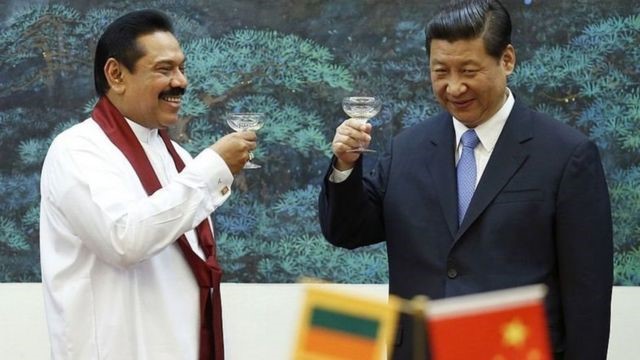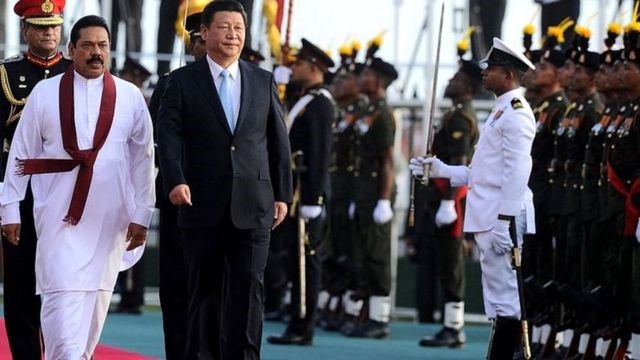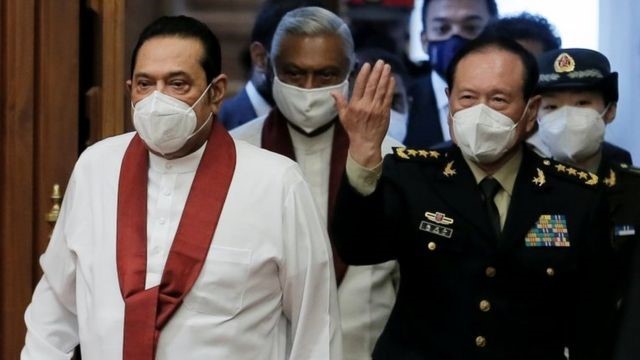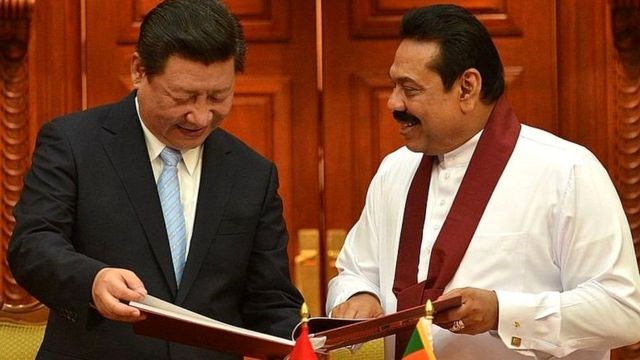Sri Lanka: This part will become a ‘colony’ of China with the new law?
The Parliament of Sri Lanka has passed the Port City Economic Commission Bill on 20 May. With the implementation of this new law, the port city area created with the financial help of China will be exempted from some national laws and special provisions made for this will apply here.
Local media reports said that the laws of the Investment Board, Urban Development Authority and Municipal Corporation of Sri Lanka will not apply in the Special Economic Zone.
The government, led by Sri Lankan President Gotabaya Rajapaksa and his brother Mahinda Rajapaksa, hopes the new law will attract much-needed foreign investment.
However, people have expressed apprehensions that due to this new law, the sovereignty of the country has come under threat. It is also being said in these apprehensions that the port city will be used for money laundering and other financial scams. Critics also say that the government has shown haste in passing this law and has kept no way for public debate or public debate about it.

Land given on lease to China for 99 years
HEC is a $1.4 billion land reclamation project spread over a 269 hectare campus in the commercial capital of Port City Colombo, Sri Lanka.
The construction work and funding of this project is being done by China Harbor Engineering Company (CHEC). The company is a subsidiary of China’s state-owned company China Communications Construction Company Limited (CCCC) and is believed to have a role in China’s Belt and Road Initiative (BRI).
Out of the total land of 269 hectares, 116 hectares of land has been given on lease to CCCC for 99 years. It is the most ambitious development project in Sri Lankan history, consisting of large-scale economic, commercial and residential projects.
According to the new law, the port city will now be a special economic zone. It will not be governed by the local administrative body, but will be under the responsibility of the Economic Commission to be set up to oversee it.
In February 2020, the Daily Mirror, a newspaper of a private group in Sri Lanka, published a report according to which by 2041, when the project is fully implemented, it will contribute $11.8 billion to Sri Lanka’s GDP every year.
The bill passed by the government was introduced in Parliament in March this year.
According to a report in the Daily Mirror, the proposed Economic Commission will have a lot of powers and will take all the decisions to develop the port city as an international business hub.
According to the newspaper, the commission will have powers to give tax exemption for 40 years from issuance of license for business activities.

‘Port City will become a Chinese colony’
The members of the commission will be appointed by the President of Sri Lanka and in this area major national laws will not apply, Parliament will also have no power.
Defending the Sri Lankan government’s tax concessions to attract foreign investment, cabinet co-spokesperson Udaya Gammanpila told the Daily Financial Times on March 31, “The port city faces competition from Dubai, Hong Kong and other international financial centres. Have to do it. That’s why it is important to help this project.”
People who are not Muslims but fast
However, this move is being criticized from within the government as well as from the opposition on two grounds. Some have expressed apprehensions that the law would threaten Sri Lanka’s sovereignty.
At the same time, others say that when the country is facing the crisis of the Kovid-19 epidemic, it was not right to focus on one law in such a situation.
Sri Lanka’s ruling party Sri Lanka Pudujana Peramuna (SLPP) MP Vezayadasa Rajapaksa told the media in April that the law would lead to the port city becoming a Chinese colony.
According to the Colombo Page News website, Rajapaksa had said, “This commission will work according to the needs of the Chinese company. Many laws applicable inside the country will not apply in the port city.”
Former Sri Lankan Prime Minister Ranil Wickremasinghe also expressed concern, saying, “Why did the Sri Lankan Central Bank not get full control of the Port City? Why was the Port City removed from the control of the Sri Lankan Parliament? Will become a den of black money.”
‘Violation of many provisions of the Constitution’
In April, several petitions were filed in the Sri Lankan Supreme Court, challenging the bill on constitutional grounds. Those who filed the petition included Murutthattuwe Ananda Thero, leader of the opposition, famous Buddhist guru and aide of Gotabhaya Rajapakse, who also claimed that the port city was being made a sugar colony.
Sri Lankan Law Minister Ali Sabre responded to such allegations on 18 April. According to Sri Lanka’s official newspaper Daily News, he said, “The port city is completely of Sri Lanka, we are trying to get more and faster investors for this project.”
Transparency International Sri Lanka (TISL) has also challenged this law. According to Cyclone Today newspaper, TISL has said that several provisions of the Sri Lankan Constitution have been violated in the case of Port City and it will lead to corruption, illegal money transactions and money laundering.
On 18 May, the Speaker of the Sri Lankan Parliament, Mahinda Yapa Abeywardene, announced the Supreme Court resolutions.
The Supreme Court has found some provisions not in accordance with the constitutional provisions and has also given some suggestions. Accepting these resolutions, the government has said to implement the amendment.
It was also decided on this day that on May 19 and 20, this law would be discussed and voted on. After this, on May 21, a nationwide lockdown has been implemented in view of the covid-19 epidemic.

Leaders of the opposition and religious leaders have raised questions on this. According to the website of Sinhala’s popular daily Lankakadapi, the main opposition leader Laxman Kiriella had said in Parliament that it is shameful to pass such a law in the time of the Kovid-19 epidemic.
According to the privately owned Sinhala newspaper Maubima, Colombo’s Archbishop Cardinal Malcolm Ranjit and Buddhist cleric Eli Gunavansa Tharo appealed to the government to vote on the bill later.
But according to the plan of the government, this bill was debated and voted on. 149 votes were cast in favor of the government while 58 in the opposition.
The passage of the bill on May 21 was seen as positive by government-owned media publications, while privately owned media expressed concern about it.
State-owned Sinhala newspaper Dinamina wrote, “Colombo Port City is a great effort to connect Sri Lanka with the global economy.”
Privately owned English newspaper The Iceland Newspaper wrote, “No law can be made acceptable to the people by a majority in Parliament and judicial approval. In the coming time, this law will be reviewed in the people’s court and its decision will be taken at the next election.” will be narrated.”
On the other hand, Colombo Page wrote on 26 May that Transparency International Sri Lanka has expressed serious concern about the new law.
Transparency International Sri Lanka has said, “The haste with which this law has been passed, it is also a violation of the right of the people to information. Even the parliamentarians of Sri Lanka did not get enough time to see and understand it. They would have made better decisions.”




